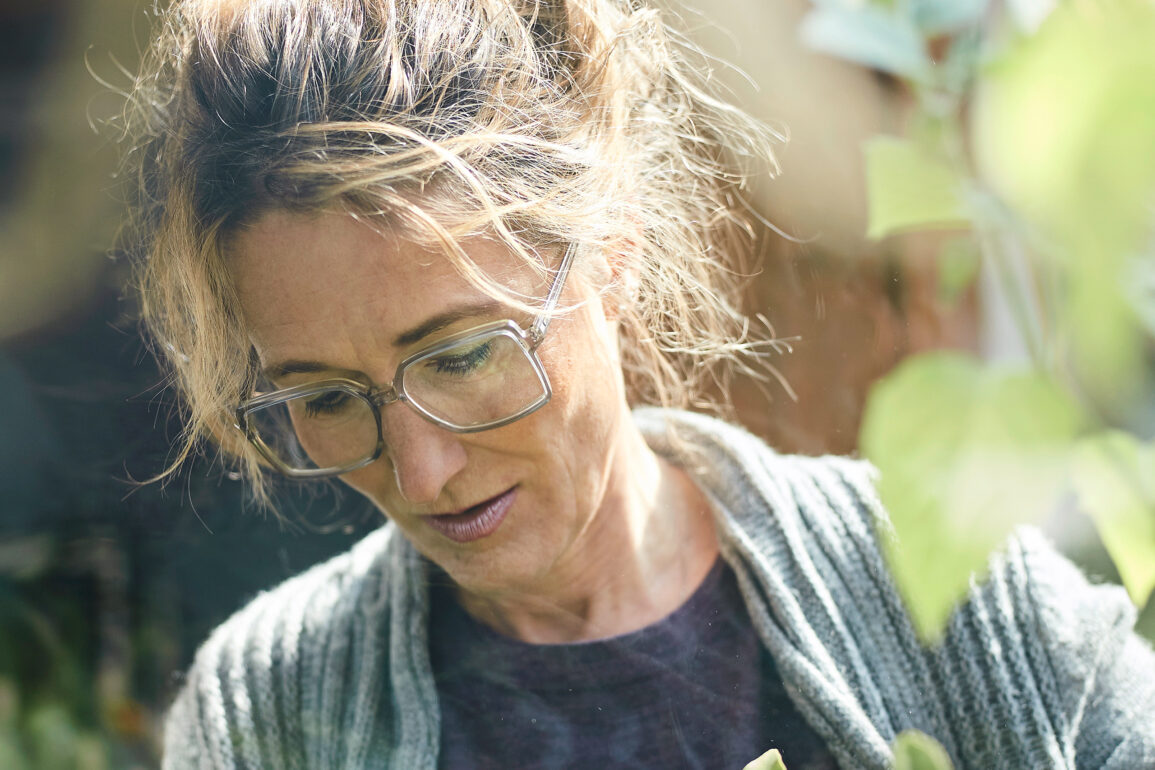Former Aargau politician Susanne Hochuli has been president of Greenpeace Switzerland since 2018. She highlights Greenpeace’s pragmatic side and where its independence is sacrosanct.
As chair of the board of trustees of Greenpeace, are you subject to special scrutiny?
I don’t think so. I’m not particularly in the public eye in this role. My work is more inward-facing – and I like it that way. We have our specialists, who represent our cause to the outside world.
But don’t you feel pressured to be more of a role model than the rest of us when it comes to environmental matters?
When I served as a Green politician in what was a very middle-class canton, I was responsible for housing asylum seekers – I am used to people taking potshots (she laughs). But, of course, I feel duty-bound to do my bit for sustainability at home. I’m not a saint by any means. But I grew up on a working farm and my ex-partner and I turned it into an organic smallholding. I’m a member of the Green party. And I initiated the start-up ‘weltweit-essen’. We use permaculture to produce organic food.
How does that work?
It’s about our responsibility towards nature. You take, but you also need to give. It’s based on ancient wisdom. I get great satisfaction out of taking care of nature. Our survival as a species depends on the health of our natural resources, the soil, the water, the air – and the climate too. But we don’t need to worry so much about the environment. It will outlive us.
So, for you, it’s not so much about protecting the environment as about protecting humankind?
It depends on how you look at the world. When I look at nature, I’m always astounded at its power to cope with change. The question is whether humanity will survive these changes. Greenpeace’s vision is that life is able to happen in all of its diverse forms. I want a world where it’s not just about surviving. That sounds like a struggle. I want a world where what counts is social justice and a good, healthy life for everyone. So, as far as nature is concerned: we need nature. It doesn’t need us. If we look at the loss of soil fertility each year due to overuse, any child can see that we are depriving ourselves of our own means of existence – and that of other living creatures. Because what we are doing to nature will come back to bite us sooner or later. The health of ecosystems, humans and animals are interconnected. That’s why the CO2 Act is so important. That’s why I also support the two pesticide initiatives.
We need to become more aware of the fact that we are harming ourselves.
How do we do that?
Take the coronavirus pandemic as an example. It’s a problem for us, but not for nature. The reach of its impact has to do with our lifestyle, the destruction of habitats, globalisation, high levels of mobility. I hope we will start to think about whom our behaviour is harming. Because it’s mainly ourselves.
You used to be a politician. You know how government works. Are NGOs and volunteers acting where governments have failed?
In Switzerland, a lot of voluntary work is being done in a huge number of areas. Is that to do with a failure of politics? Or isn’t it more a failure of society? In a democracy, politics reflects society. So I’d say it’s a failure of society as a whole. But it’s always very easy to blame politicians and keep out of the firing line.
What can a foundation do better than governments or businesses?
Businesses are primarily about maximising profit. NGOs are able to focus on actual issues. They advocate for them, are committed to them. NGOs or foundations are always able to draw society’s attention to failings in a more truthful and unapologetic way. They don’t have to dress anything up. They don’t have to toe the line.
How free are you as Greenpeace Switzerland? How much do you have to toe the line where the international organisation is concerned?
Of course, we’re all pulling in the same direction. We support Greenpeace International in the goals it is pursuing worldwide. As a national organisation, we approach them individually. If their focus is on protecting Antarctica or the oceans, we try to find a Swiss angle. We examine how we can make the subject accessible for the Swiss public.
Antarctica and whaling make for spectacular images.
Powerful images move people. Take the problem with plastic. Switzerland is a huge consumer of plastic. So we are also contributing to the plastic pollution in the planet’s oceans. We use plastic. We are responsible for the fact that it’s produced. You can use spectacular images to draw attention to these issues. But Greenpeace doesn’t just work with spectacular images. We carry out scientific work. This winter, we ran a field study that showed how synthetic chemical pesticides drift and spread in the air. Greenpeace also helps find solutions. We try to help highlight how our society could do better.
How closely are you able to work with business?
We communicate with other stakeholders. For example, we name alternatives to throwaway packaging. At the same time, we always remain independent so that we retain the ability to publicly criticise companies.
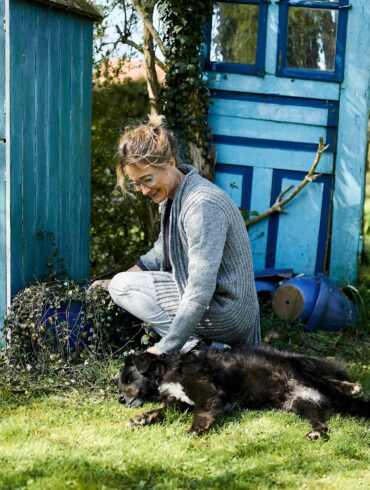
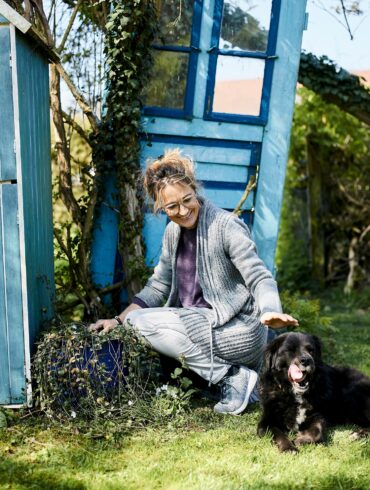
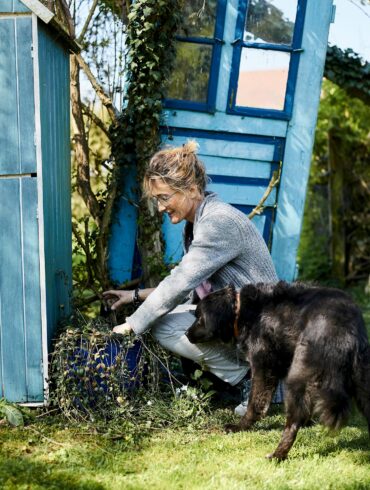
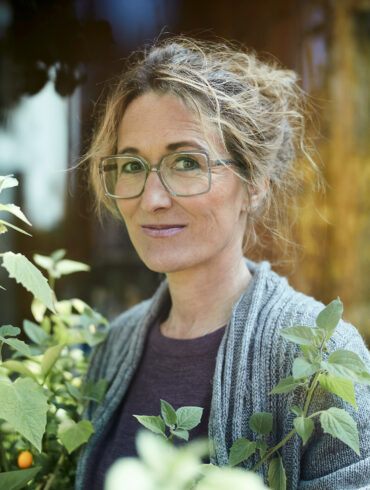
Photos: Herbert Zimmermann
You called for people to make use of restaurants’ takeaway services.
The pandemic is an exceptional situation. It has created despair and is forcing people into poverty. Our call was designed to highlight the difficult situation the hospitality industry is facing – and to suggest very pragmatic solutions.
But takeaways mean plastic?
A huge number of businesses in the hospitality industry switched to doing takeaways at short notice. Very few of them had time to organise recyclable takeaway packaging. But Greenpeace wants to help solve the problem in the long term. Just pointing fingers at who is getting things wrong is of no use to anyone.
Where do you draw the limit with business?
What we’d never do is accept money or services. Independence is key to our approach. We take donations from private individuals and from foundations. We are, and intend to remain, financially independent – in the same way that we are politically independent.
Meaning?
Holding a public office at local government level or above is not compatible with a position at Greenpeace. That includes executive, legislative and judicial offices and standing as a candidate for those offices.
Greenpeace is politically independent but gets involved in political issues. There are people at the moment who want to bar tax-exempt NGOs from involvement in politics. Is that an issue in other countries too?
In certain countries it’s a huge issue. Some of our offices are under extreme pressure and are even being searched. It’s difficult to get the money we need for our work in those countries.
And in Switzerland?
Until the Responsible Business Initiative, the pressure on NGOs in Switzerland wasn’t that high. But the referendum campaign was toxic. We can never compete with the financial and lobbying power of big business. There are more and more people who don’t want to put up with the power of these conglomerates any more. And that’s a good thing! The ties between big business and politicians are toxic for the climate, biodiversity and the common good. Greenpeace works to expose, document, mobilise and bring expertise to protecting the environment and the climate. We aren’t afraid to point out uncomfortable facts. I think it’s very dangerous to say NGOs mustn’t be politically active.
How so?
In a country like Switzerland, change happens through politics. We have constant referendums. It’s vital that the voices of NGOs are heard here. Because other voices will definitely be heard.
Is it getting more difficult to be heard? Sustainability is all the rage right now. More and more organisations are taking a stance on the issue.
I don’t see why having lots of different organisations addressing the same topic should be a problem. Each organisation manages to speak to different people. The climate movement appeals to very young people and encourages them to get involved and think politically. Of course, you could say we’re losing potential donors there. But I don’t see it as a competition.
We’re all in the same boat?
Sustainability is a huge issue. We should be happy that we have fellow campaigners who focus on different aspects and who have different access to government or business. That makes us stronger. We need to work together.
But the issues have become more complex. Is it more difficult for you to explain what makes Greenpeace unique?
I don’t see that as a negative thing. As a species, the deeper we delve into a complex subject, the more we recognise that we don’t yet have all the answers. Our role at Greenpeace is to investigate and inform. We need to improve understanding. And we’re doing that in our own unique, independent way. Because, of course, we rely on donations. We can only do this work if people place their trust in us.
Going forward, what do you feel are the biggest challenges facing Greenpeace?
It’s not just Greenpeace facing challenges – as a species, we’re all in the same boat. We need to take care of our planet. It’s particularly incumbent on us in Switzerland because we have the resources, the education and the opportunities to change. Wherever they are around the world, people want the ability to live a good and just life.

